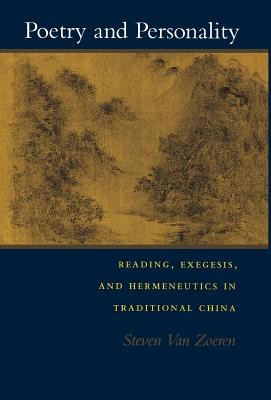
- We will send in 10–14 business days.
- Author: Steven Van Zoeren
- Publisher: Stanford University Press
- ISBN-10: 0804718547
- ISBN-13: 9780804718547
- Format: 14 x 21.6 x 2.4 cm, hardcover
- Language: English
- SAVE -10% with code: EXTRA
Reviews
Description
This is a history of the hermeneutics of China's earliest classic, the Book of Odes, which was probably compiled about the 6th century BC. Neither a reading of the Odes as such, nor yet a history of their interpretation, this study attempts rather to trace the principles that guided the interpretation of the Odes over some two thousand years of Chinese history. The book begins by tracing the rise and development in China of the disposition to treat certain 'classical' texts as the ultimate repositories of the culture's values and norms, a disposition that was to shape the political, social, and cultural institutions of traditional China. A notable example was the examination system, which tested candidates for state office on their knowledge of the canon, in the process making questions concerning the interpretation of the canon prominent in public as well as in private life. The author then describes the emergence of the distinctive and influential hermeneutic associated with the Odes.
EXTRA 10 % discount with code: EXTRA
The promotion ends in 17d.21:22:10
The discount code is valid when purchasing from 10 €. Discounts do not stack.
- Author: Steven Van Zoeren
- Publisher: Stanford University Press
- ISBN-10: 0804718547
- ISBN-13: 9780804718547
- Format: 14 x 21.6 x 2.4 cm, hardcover
- Language: English English
This is a history of the hermeneutics of China's earliest classic, the Book of Odes, which was probably compiled about the 6th century BC. Neither a reading of the Odes as such, nor yet a history of their interpretation, this study attempts rather to trace the principles that guided the interpretation of the Odes over some two thousand years of Chinese history. The book begins by tracing the rise and development in China of the disposition to treat certain 'classical' texts as the ultimate repositories of the culture's values and norms, a disposition that was to shape the political, social, and cultural institutions of traditional China. A notable example was the examination system, which tested candidates for state office on their knowledge of the canon, in the process making questions concerning the interpretation of the canon prominent in public as well as in private life. The author then describes the emergence of the distinctive and influential hermeneutic associated with the Odes.


Reviews